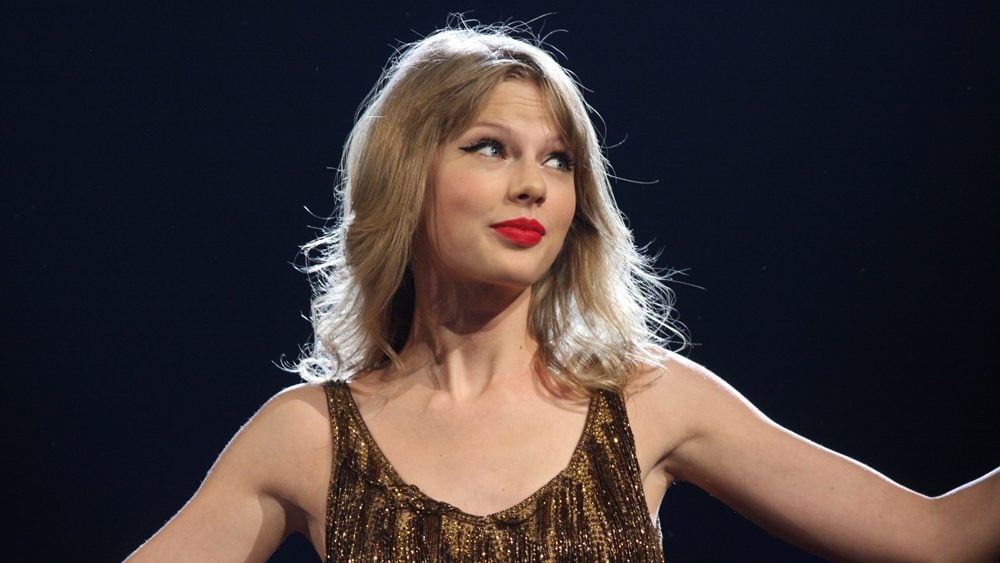Taylor Swift’s impact as a singer-songwriter is astonishing, but so too is her impact on the planet. Despite quietly downsizing to one private jet in January 2024, her carbon footprint cuts deep: generating in two weeks 14 times more than the average American household emits in a year. Her response? To send a cease and desist to the university student who publicized flight data on the basis of “stalking and harassing behavior”. This did not help her case. In classic billionaire style she used the legal system to dispel criticism, a move camouflaged by a feminist smokescreen. Which begs the question – does being a female billionaire make you a ‘feminist icon’, or does it protect the idea of the billionaire under the veil of the ‘girlboss’?
In her 2020 documentary, Miss Americana, Taylor Swift describes her ‘choice’ to endorse Democratic candidates. But politics is not an opt-in opt-out situation, especially at her level of fame, wealth, and influence. Politics, and political oppression is all around us. Complicity is found in silence, and we expect more of public figures whose voices carry further. So they trip over themselves to be seen as one of the ‘good ones’. The question of what they communicate to their millions of fans is essential, and telling. In the case of Taylor Swift, the way she behaves and the way she thinks matters. For instance, in ‘The Man’ she sings:
“I’m so sick of running as fast as I can, wondering if I’d get there quicker if I was a man” / “I’m so sick of them coming at me again, ‘cause if I was a man, then I’d be the man”
The lyrics do little to challenge hegemonic masculinity, or the legitimation of traditional masculine ideals and their dominant place in society, rather they lean into it. Though the speaker suffers under the patriarchy, she doesn’t challenge its hierarchical nature. She is jealous of ‘the man’, more specifically an ‘alpha type’ who would assert masculine dominance over other men as well as women. As she cannot achieve this, she increases her power through amassing personal wealth. Once she has ran as fast as she can, won the rat race, and broken the glass ceiling she takes her place at the top: she is a billionaire. Taylor Swift’s journey may have been different, but her destination is the same. In this neoliberal form of feminism social hierarchies are untouched. While one ‘girlboss’ is empowered, she leaves her peers in her wake. No one is truly liberated.
For Swifties, I imagine, this must be difficult to hear. I understand, to some extent, the knee-jerk urge to protect her. To be a woman in the public eye is to be a victim of sexist virtriol – or bitterly harsh criticism on a misogynistic basis. Particularly with Kanye West’s ‘Famous’ lyric controversy, there were swathes of people who insisted Swift must have agreed to being presented as “that bitch” who “owes” Kanye West sex for “making her famous”. For the Swifties who actually made her famous, whose support put her in the public eye (and the line of fire), the guilt must be substantial.
Though guilt does not justify the endorsement of superficial “girlboss” feminism, the authenticity of Swift’s music calls for us to connect with her on a personal level. A level that, for some, supercedes political allegiances. Taylor Swift makes it clear: whatever you are going through, you are not alone. Or, are you? With her ‘easter eggs’ and relatable lyrics she may feel like a built-in best friend, but, to put it bluntly, Taylor Swift has no idea who you are. This sense of adoration is parasocial, entirely unidirectional. Though this is certainly not a new idea, nor one unique to Taylor Swift, the impact of parasocial relationships has been enhanced by social media and pandemic loneliness. This has transformed some of Swift’s fans into a force to be reckoned with – an army entirely convinced ‘Blondie’ is their bestie, who are eternally prepared to mobilise in her defence, even when they shouldn’t.
Taylor Swift’s billionaire status, endorsed by neoliberal feminism, is built on the one-way adoration of her fans who consume everything she creates – and she knows it. Her latest album, The Tortured Poet’s Department, has four different vinyl versions. Each one has a different bonus track and each one is priced at $34.99 – meaning that, if a fan wants to listen to all four tracks, their total will be just short of $200. Similarly, her ‘Eras Tour’ tickets are notoriously extortionate (averaging at $1,088.65), and the fans who couldn’t make it were asked to pay $19.89 to rent the Eras Tour movie for just 48 hours. At the end of the day, we are free to do what we want with our own money. But there is no denying Taylor Swift’s business strategy exploits the leagues of fans who would do anything for her.
To Swift’s fans, I must ask – is her behavior that of someone who cares more about you, or your money? Is it right that Taylor Swift is a billionaire who is almost entirely immune to criticism?
Ultimately, if someone does something damaging, we should be able to criticize their actions. Even if that person is a woman, even if that woman is Taylor Swift.



